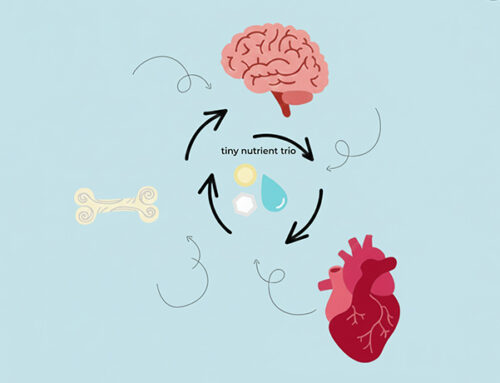The human gut, a thriving community of microorganisms, is pivotal in our overall health. This intricate ecosystem, termed the “gut microbiome,” consists of various bacteria, viruses, and fungi, each serving its unique purpose. Globally, the escalating concern of obesity is now being looked at through the lens of microbiome diversity.
The Basics of Gut Microbiome
The gut microbiome is defined by its complex composition of bacteria, viruses, and fungi. These microorganisms hold myriad functions, ranging from aiding in digestion to playing a decisive role in human metabolism and immunity.
- Not only is the gut microbiome essential for extracting nutrition from our diet, but its diverse bacteria also actively participate in regulating various metabolic pathways.
- Digestion is just one facet of its function. Recent studies suggest that our microbiota’s diversity and balance play a significant role in human immunity, ensuring a symbiotic relationship with our host cells.
Obesity: More Than Just Weight Gain
Obesity is more than a mere fat accumulation; it’s a multifaceted disease with complex causes and risks. Our modern world is seeing an alarming number of adults and even children succumb to this condition, making it imperative to understand its roots. The metabolic implications of being overweight or obese affect various bodily functions.
In America, obesity is an epidemic, with 36% of American adults currently obese and 70% overweight. Obesity is mainly due to certain dieting habits in the Western diet, such as high-calorie foods, overconsumption of carbs, and saturated fats. However, animal studies have shown that diet alone cannot induce obesity. So, what could be the root cause of the obesity epidemic?
The gut microbiome may explain the rising rates of obesity. Because the intestinal microbiome assists in the digestion of polysaccharides, this can increase the amount of glucose sent to the liver, ultimately leading to lipogenesis. The typical microbiota of an obese human has been discovered. There is an increased ratio of Firmicutes to Bacteroidetes (both are types of intestinal bacteria) that can be associated with metabolic syndrome. Genetically obese mice have 50% fewer Bacteroidetes and more Firmicutes than lean animals. The microbiota of an obese animal assists in digestion, releasing more calories during digestion than lean animals.
Historical Perspective: The Evolution of Our Microbiome
Ancient diets, teeming with fiber-rich fruits and vegetables, profoundly affected our ancestral gut flora. These diets nurtured a different kind of microbiome diversity compared to today. However, as humans transitioned into the modern era, lifestyle and dietary shifts have substantially changed our internal microbial ecosystems. Researchers believe that the drastic differences in our gut microbiota today might contribute to the rising prevalence of diseases, including obesity.
Unraveling the Science: Studies Linking Gut Health and Obesity
The realm of science has offered a plethora of research content emphasizing the relationship between gut health and obesity. Key studies have unveiled significant links between the two, especially focusing on specific bacterial strains’ role in weight management. For example, abundant bacteroidetes and a shortage of prevotella in the gut have been linked to healthier metabolic profiles.
Microbial Imbalance: Dysbiosis and Its Implications
Dysbiosis, an imbalance in the microbiome, is caused by many factors. This microbial disturbance can lead to weight gain and various metabolic disorders. Studies suggest a skewed ratio between beneficial and harmful bacteria can affect the immune system, inflammation levels, and how our body processes food.
Gut Microbes and Diet: A Two-Way Street
It’s a reciprocal relationship: our food impacts our microbiome diversity, and our gut microbes influence our food cravings and metabolism. For instance, some microbes can make us crave sugary foods, while others may prompt a yearning for fiber-rich fruits and vegetables.
Role of Fiber and Fermented Foods
A diet rich in dietary fiber bolsters bacterial diversity in the gut. On the other hand, fermented foods, like yogurt and kimchi, act as a source of beneficial microbes, replenishing our gut with health-promoting bacteria.
Probiotics and Obesity: Can Supplements Help?
The world of probiotics is awash with both myths and facts. While they’re known to introduce beneficial bacteria into the gut, their efficacy in weight management remains under extensive research. Some studies show positive results, while others provide inconclusive data.
Beyond Weight: Other Health Impacts of a Diverse Microbiome
The gut-brain connection has piqued the interest of many researchers. A diverse microbiome may influence mental health, mood, and cognitive functions. A balanced gut is also crucial in regulating inflammation and ensuring robust immunity.
Practical Steps for a Healthier Gut
To foster a flourishing gut, one should incorporate a diverse range of whole foods into their diet. It’s also paramount to exercise caution with antibiotics and other potential disruptors, using them judiciously and only when necessary.
Conclusion
The undeniable connection between gut health and obesity is a testament to how our body interacts with its internal environment. Emphasizing a holistic approach, encompassing diet, lifestyle, and mindfulness, is paramount to ensuring optimal weight and overall health.
FAQs
Are all bacteria in our gut beneficial?
No, while many bacteria are beneficial, pathogenic bacteria can cause harm if they become dominant.
How quickly can one alter their gut microbiome through diet?
Significant changes can be observed within a few days to weeks, but a sustained change requires consistent dietary habits.
How do antibiotics disrupt the gut microbiome?
Antibiotics can reduce the microbiome’s diversity by indiscriminately killing harmful and beneficial bacteria.
PASSOS, Maria do Carmo Friche, & MORAES-FILHO, Joaquim Prado. (2017). INTESTINAL MICROBIOTA IN DIGESTIVE DISEASES. Arquivos de Gastroenterologia, Epub July 06, 2017.https://dx.doi.org/10.1590/s0004-2803.201700000-31




